Upcoming Education and Scholarship Opportunities for Young Adults with Disabilities
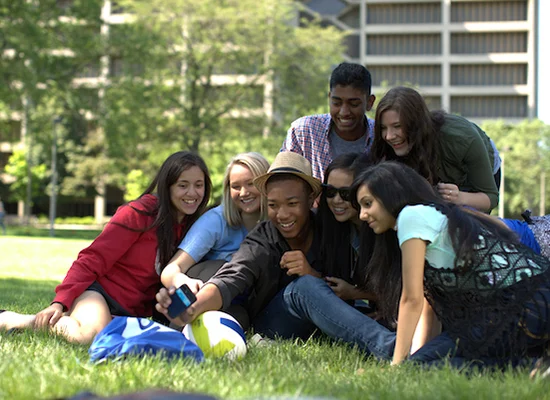
Learn more about the Illinois Community College Initiative and 2023 CSBG Scholarship Program
Finding the right programs and resources is key when planning for the future as a young adult with disabilities.
Two programs currently offer valuable education, training and scholarship opportunities for Illinois youth interested in college or joining the workforce after high school.
Illinois Community College Initiative
The Illinois Department of Human Services’ Division of Rehabilitation Services (DRS) wants to help people with disabilities in their quest for success.
The Illinois Community College Initiative provides academic and vocational training programs for eligible students with disabilities at in-state public community colleges and approved community colleges bordering the state.
People with disabilities who are eligible for the DRS vocational rehabilitation program are eligible to participate. You may complete community college coursework leading to an associate degree or to a degree, certificate or other industry-recognized credential or certificate.
DRS will help you with:
- Tuition
- The cost of fees, books and supplies
- Transportation costs
- Other eligible costs
See the Illinois Community College Initiative flyer for more details.
Spanish-speaking families can listen to the radio ad or read the ad transcript in Spanish.
Ready to get started? Contact your local DRS office using the locator tool or call (877) 581-3690. TTY and relay callers can dial 711.
2023 C.E.F.S. Economic Opportunity Corporation’s CSBG Scholarship
C.E.F.S. Economic Opportunity Corporation has a scholarship program to help students pay for college or occupational training.
The CSBG College Scholarship program provides financial help to income-eligible students living in the following counties:
- Christian
- Clay
- Effingham
- Fayette
- Montgomery
- Moultrie
- Shelby
You can use the scholarship to pay for formal education or occupational training in an accredited Illinois educational institution. Training and degrees may include:
- Associate, bachelor’s or master’s degree, post-secondary education
- General education, short-term training (two years or less) in growth occupation skills
The CSBG scholarship is competitive and awards students based on:
- Income
- The interview process
- Choosing to go into high technology areas or other growth occupations
Previous scholarship recipients can submit an application. You must be enrolled or intend to enroll as full-time students for the fall 2023 semester in an Illinois-accredited college. Full-time is 12 hours or more.
Click on the CSBG Scholarship application or get an application at your county C.E.F.S. outreach office. The application includes contact information for each local office.
You can also visit the C.E.F.S. website for more information.
You must complete your application and submit all requested documents to your local office by April 14 at 4 p.m.
All eligible candidates will have an interview in May.
Find More Transition Resources
Visit the Transition Tools section of our website to find more programs and information to help with planning and paying for college, getting a job and more.
You can browse the Transition: Education Resources and the Transition: Work Resources categories to find what you need.
Our team is also here to help partner with you and your family to help make the transition to adulthood as successful as possible.
Contact us to find out more!
2023 Summer Camp Opportunities for All Ages and Abilities
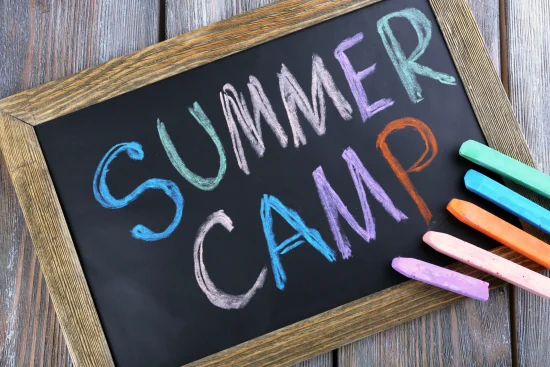
Check out our list of inclusive camps to help you find the right fit for your child
It’s never too early to start planning for summer break activities.
Fortunately, there are a variety of opportunities for children and young adults with special healthcare needs.
We’ve compiled a list of day and overnight camps across Illinois as well as virtual programs.
Does your child want to make new friends? Develop new skills? Meet others with their condition or become more independent?
Our 2023 summer camp list can help you find the right fit.
These camps are accessible and inclusive for a variety of needs, including many of our program’s eligible medical conditions.
Our events calendar shows the summer camps listed by date. You may also search for events in your area by clicking on a regional office near you.
Know of a good summer camp opportunity to add to our list?
Send us the details at dscc@uic.edu. We’ll continue to update our list of camps and activities, so please check back often.
Sensory-Friendly Easter Bunny Visits
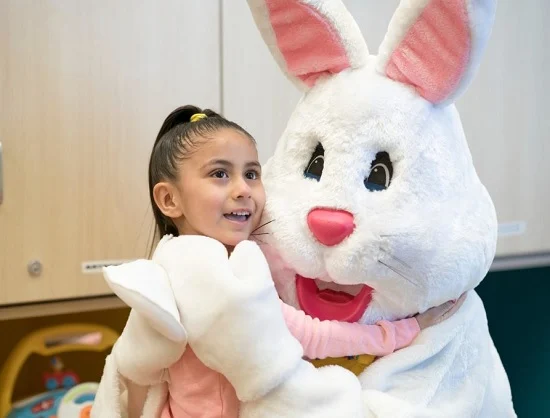
Hippity-hoppity, the Easter Bunny is on its way!
Sensory-friendly Easter Bunny visits are happening at sites throughout Illinois and the St. Louis area. Individuals of all ages and abilities may schedule an appointment.
The visits will take place in a calmer, quieter environment that supports visitors’ sensory, physical and developmental needs. Autism Speaks is partnering with Cherry Hill Programs to provide these special Easter Bunny photo events.
The Bunny Cares experiences are free. Photos will be available to buy at each event.
You can see the Easter Bunny on March 26 at the following locations (in the “Reserve” section for each location, click on the “Events” button and select “Bunny Cares”):
- Fox Valley
- Frontenac Plaza (Missouri)
- Hawthorn Mall
- Market Place Shopping Center
- Northwoods Mall
- Orland Square Mall
- White Oaks Mall
- Woodfield Mall (also hosting an event on April 2)
Reservations are limited. Visit the Bunny Cares website for a complete list of sites and to reserve your spot.
Many communities are also hosting sensory-friendly egg hunts and opportunities to meet the Easter Bunny. To find these events and other family-friendly spring activities, hop on over to our Special Events page.
Illinois Miss Amazing Empowers Girls and Women with Disabilities
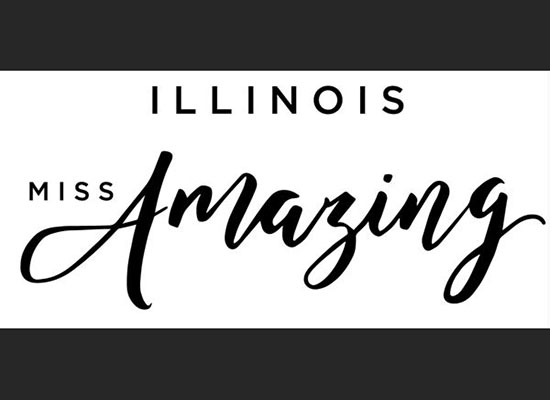
The 2023 Illinois Miss Amazing program is accepting applications through Feb. 15.
Miss Amazing is a national nonprofit program that encourages girls and women with disabilities to consider their goals, challenge themselves and take pride in who they are.
The Illinois Miss Amazing experience brings together a diverse group of participants to build friendships, self-confidence and self-advocacy skills.
Illinois Miss Amazing is now taking applications for its 2023 Amplify event on March 18 in Bolingbrook.
Participation is open to girls and women ages 5 and older who have:
- An Individualized Education Program (IEP) or Individualized Program Plan (IPP)
- A 504 Plan
- Supplemental Security Income (SSI)
- A physician’s records proving disability
The Illinois Miss Amazing Amplify event activities include:
- Show rehearsal
- Interviewing
- Passion presentation
- Hair and makeup
This year’s event also features a new category. Miss Amazing Mentor is for women ages 36 and older. Mentoring can include:
- Helping the younger Miss Amazing age divisions
- Assisting at your job
- Helping at events or with organizations you feel passionate about!
Miss Amazing Mentor participants will take part in the Amplify event interview, passion presentation and personal introduction.
The March 18 Amplify event is at the Bolingbrook Community Center, 201 Canterbury Lane, in Bolingbrook.
Illinois Miss Amazing is accepting applications until Feb. 15 or until all spots are filled.
The program is also accepting applications for volunteers who want to share in the experience. Visit the Miss Amazing website for details about volunteer options.
You can learn more about the Illinois Miss Amazing program and how it helped one of our participants set goals and pursue her dreams at https://dscc.uic.edu/dscc-participant-promotes-illinois-miss-amazing/.
Sensory-Friendly Holiday Events Happening Across Illinois
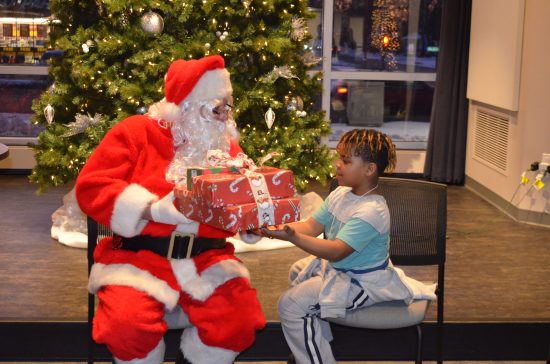
Events feature sensitive Santa, holiday lights, craft activities and more!
Are you looking for sensory-friendly events that the whole family can enjoy this holiday season?
There are a number of sensitive Santa opportunities, festivals and other holiday activities going on across Illinois.
Our Special Events page includes a roundup of opportunities designed specifically for youth with disabilities and special healthcare needs.
Here’s a look at some of the special programs available and other event guides for parts of the state:
- The Secret Sleigh Project coordinates volunteers to provide in-home Santa visits to children who are medically fragile nationwide. See our Secret Sleigh event listing for more details on how to request a visit.
- The National Federation of the Blind is offering letters from Santa and winter celebration letters in Braille to children who are blind or have low vision. The program is for children 10 years old and younger. Please complete the letter request form by Dec. 17. Letters are available in English or Spanish. If you have any questions, call (410) 659-9314, ext. 2236, or email education@nfb.org.
- The Santa Cares program from Autism Speaks and Cherry Hill Programs provides sensory-friendly Santa experiences in Illinois and the St. Louis area on Dec. 4. These visits are free. Keepsake photo packages will be available for purchase. Reservations are required. Visit the Santa Cares website for a complete list of Santa’s stops. Be sure to select “Santa Cares”, “Caring Santa” or “Sensitive Santa” when checking your location. (Note some event dates may vary. Please check your location to confirm your date and time.)
- For families in the Chicagoland area, Chicago Parent magazine provides a list that includes opportunities to visit with Santa and other events tailored to the needs of children with disabilities.
- In central Illinois, check out this list from ChambanaMoms.com for events within driving distance of the Champaign-Urbana area or this list of seasonal light displays and events from the Mahomet Daily.
- SpringfieldMoms.org’s seasonal guide provides a roundup of activities happening in the capital city area.
- Southern Illinois residents can find many fun, seasonal activities on SI Families’ event calendar. It’s packed with ideas including a drive-thru Santa event in Marion, the Lights Fantastic Parade in Carbondale and even a “Home Alone” drive-in movie event at Murphysboro High School.
- The animals at the Lincoln Park Zoo, St. Louis Zoo, and other zoos throughout Illinois are celebrating the season, too! Contact your local zoo to find out what’s happening and when.
Be sure to check our Special Events page often as we add more holiday activities to the list. If you know of a good sensory-friendly event to share, please email us at dscc@uic.edu.
Happy Holidays!
Please note, the University of Illinois Chicago’s Division of Specialized Care for Children (DSCC) is not involved in the organizing or scheduling of these holiday events. If you have questions about a specific event, please contact the event sponsor or organizer.
Resources for Voters with Disabilities
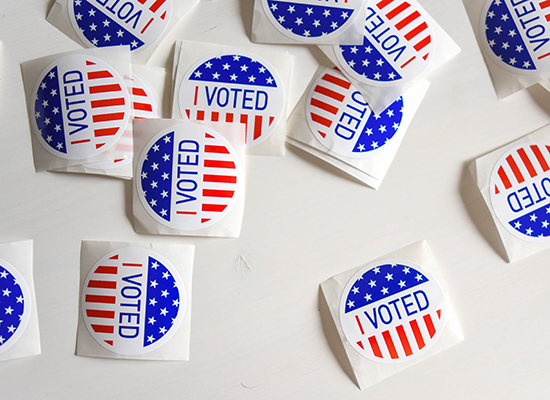
Accessible guides and information on your rights and options as a voter with a disability
Election Day will be here soon. Voting is a meaningful way you can have a say in what happens in your community and government.
If you or a loved one need accommodations or have questions about your rights, there are several resources to help you at the polls:
- The Arc has a Disability Voter Guide that includes information in plain English and Spanish on how voting works, how to register to vote, how to help others vote and more. Visit https://thearc.org/vote for the guide and other helpful resources.
- The American Association of People with Disabilities has a voting information hub that includes answers to common voting questions from voters with disabilities, state-by-state voting guides and more.
- The Autistic Self Advocacy Network has “Your Vote Counts: A Self-Advocate’s Guide to Voting in the U.S.” that includes how to prepare to vote and how to get accommodations when voting.
- Easterseals has a Voting Checklist for People with Disabilities to explain your rights, what to do if your rights are being violated and more.
- The National Association of the Deaf has a voter information hotline to help individuals who are deaf or hard of hearing with questions about voting.
- The National Federation of the Blind has guides for voters who are blind and information about accessibility and the Help America Vote Act.
If you have questions or need help finding more resources, contact us at (800) 322-3722 or email dscc@uic.edu.
New Fund for Adaptive Athletes With Spina Bifida
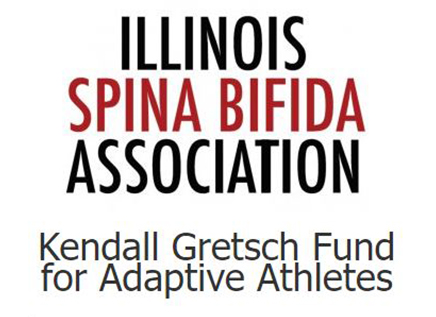
The Kendall Gretsch Fund for Adaptive Athletes promotes sports to Illinois children and adults with spina bifida.
Four-time Paralympic gold medalist Kendall Gretsch has partnered with the Illinois Spina Bifida Association (ISBA) to promote sports to children and adults with spina bifida.
The new Kendall Gretsch Fund for Adaptive Athletes helps Illinois individuals and families living with spina bifida pay for sports-related registration, equipment and travel expenses.
ISBA is administering the fund and will award grants of up to $250.
Kendall was born with spina bifida and grew up in Downers Grove, Ill. She is a three-time Paralympian and four-time Paralympic gold medalist. Kendall competes in cross-country skiing and biathlon during the winter and paratriathlon in the summer.
“I wish for everybody to be active and find a passion for sports,” Kendall told the ISBA. “Now when a family living with spina bifida needs some adaptive sports equipment or help with the cost of travel and event participation, this fund will be there to help.”
You can read more about the Kendall Gretsch Fund for Adaptive Athletics and Kendall’s multisport career at i-sba.org/sportsfund.
ISBA is sending fund applications to people on its mailing list who are living with spina bifida. You can contact ISBA at (773) 444-0305 or info@i-sba.org to sign up for the fund’s free mailing list.
Spina bifida is a neurological condition in which the spine fails to close properly during the first month of pregnancy. It can cause physical and developmental disabilities that range from mild to severe.
ISBA works to improve the quality of life of more than 900 Illinois children and adults living with spina bifida by promoting skills development and independence. Visit the ISBA website to learn more.
Spina bifida is also an eligible medical condition for the Division of Specialized Care for Children’s (DSCC) programs. Visit our “How We Help” page for more details.
New Nationwide Three-Digit Mental Health Crisis Number
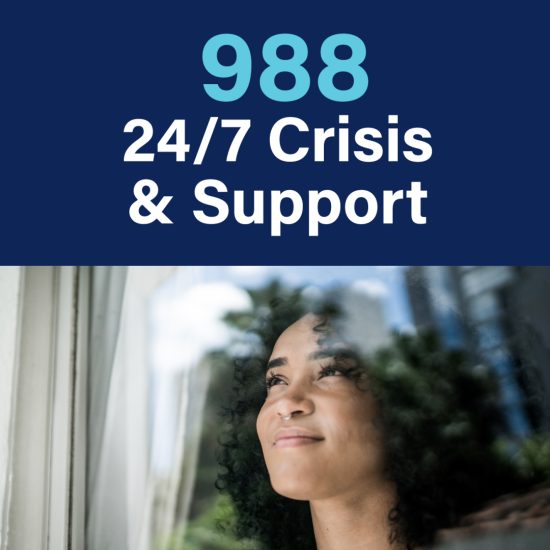
Individuals facing mental health crises can call 988 anytime for help and life-saving services
Starting on July 16, a simple three-digit number will connect anyone in the United States to the National Suicide Prevention Lifeline (also called the Lifeline).
The new 988 dialing code will help people facing mental health crises immediately connect to individuals who are specially trained to respond to such situations. It is available for calls (multiple languages) and text or chat (English only).
The Lifeline is free, confidential and available 24 hours a day, seven days a week.
Lifeline crisis counselors understand what callers are going through and know what local resources might make a difference. Anyone who needs support for a suicidal, mental health and/or substance use crisis may dial 988.
The new 988 number aims to strengthen efforts to transform crisis care nationwide. It will serve as a universal entry point so that no matter where someone lives, they can reach a trained crisis counselor who can help.
According to the Centers for Disease Control and Prevention, one in five Americans will have a mental illness in any given year.
The Substance Abuse and Mental Health Services Administration (SAMHSA) reports that in 2020 the United States had one death by suicide about every 11 minutes. Suicide is also a leading cause of death for people ages 10 to 34 years. Additionally, more than 100,000 individuals died from drug overdoses from April 2020 to 2021.
You can learn more about how 988 works and the support it provides on the 988 Frequently Asked Questions page.
This fact sheet also explains the basics about 988. (You can also see the fact sheet in Spanish.)
The current Lifeline phone number of (800) 273-8255 will remain available to people in emotional distress or suicidal crisis, even after 988 is launched.
Individuals may also continue to text the Crisis Text Line (text HOME to 741741). Both offer free, confidential help around the clock, 365 days a year.
You can also visit our online Resource Directory for more mental health services and support.
UIC Launches New Certificate Program for Students With Disabilities
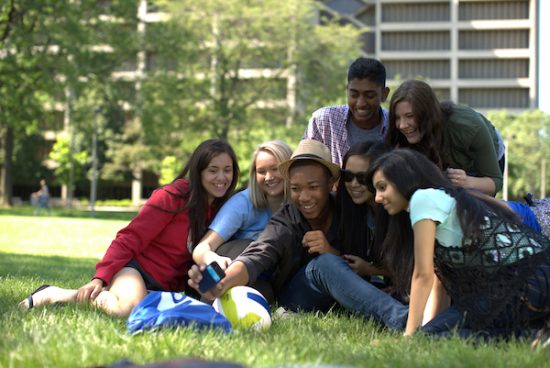
PLEASE NOTE: As of spring 2024, the Co-Op Program is no longer accepting new students.
Are you interested in going to college this fall?
The University of Illinois Chicago (UIC)’s Co-Operative Career Experience Certificate (Co-Op Program) could be a good fit.
This new certificate program aims to help students with intellectual and developmental disabilities achieve competitive careers in the community.
The Co-Op Program will prepare students through inclusive classes and community work placements. It is designed to support students who may not be able to access post-secondary education in traditional ways.
UIC’s Department of Disability and Human Development is now accepting applications to the Co-Op Program for the fall 2022 semester. The deadline to apply is July 13.
Students in the program earn undergraduate credits from UIC’s Department of Disability and Human Development. Participants have an academic transcript just like any other UIC student.
Co-Op staff members are available to help students get the accommodations needed to complete assignments and take classes alongside other UIC students.
In addition to learning in the classroom, students in the Co-Op Program will build skills through practical work placements in the community.
The combination of classroom and on-the-job experience helps students network and create a path toward career opportunities after certificate completion in:
Students must complete a total of 36 credit hours to complete the program.
To be eligible for the Co-Op program, applicants must:
- Be a high school graduate
- Be 18 years old or older
- Have a diagnosed intellectual or developmental disability
For more information about the program, admission and costs, visit the Co-Op Program website.
Interested Co-Op applicants must use the program’s specialized application form to apply.
If you need help with the application process, the Co-Op team can assist in several ways:
- Sign up to attend the Community Webinar on June 24 at 12 p.m. (The webinar will be recorded and posted on the Department of Disability and Human Development’s YouTube Channel to watch later).
- Contact the Co-Op team with any questions at DHDCoOp@uic.edu.
- Check out The Co-Op Program Facebook page for regular updates and information.
Formula Shortage Resources for Families
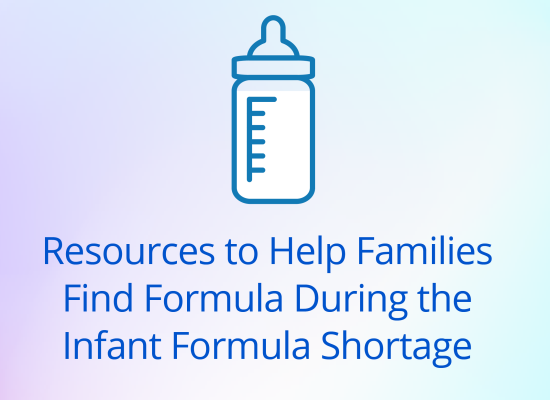
Helpful information and tips to find formula and keep children healthy
The infant formula shortage continues to affect families across the country.
Formula is not only important for babies’ nutrition but also for some young children, teens and adults with medical needs.
Several resources are available nationwide and here in Illinois to help families during the shortage:
- The U.S. Department of Health and Human Services (HHS) website has resources in a variety of languages to help families find infant formula during the shortage. These resources include information on safe substitutes, formula company contacts and community programs.
- The Illinois Department of Human Services (IDHS) has trained caseworkers to help families with formula questions. You can contact the IDHS Help Line at (800) 843-6154. The Help Line is primarily for Supplemental Nutrition Assistance Program (SNAP) and Women, Infants and Children (WIC) participants but is open to all Illinois residents.
- For Illinois WIC participants, a waiver now allows for flexibility in the size and type of formula available to buy with WIC benefits. More details are on IDHS’ “Having Trouble Finding Formula” page.
- Illinois WIC programs also provide a wide range of support for breastfeeding mothers and funds for healthy foods, including fresh fruits and vegetables. More information and updates can be found on the Illinois WIC website. Families can also call (217) 782-2166 for additional support
- Illinois WIC programs also provide a wide range of support for breastfeeding mothers and funds for healthy foods, including fresh fruits and vegetables. More information and updates can be found on the Illinois WIC website. Families can also call (217) 782-2166 for additional support
- HealthyChildren.org, the parenting website of the American Academy of Pediatrics, provides tips on finding baby formula during the shortage and what you may safely consider if you can’t find any. The site is updated regularly with helpful information and the latest guidance.
- The U.S. Food and Drug Administration (FDA) has released information on the international formulas that will soon be on store shelves in the United States. Some of these formulas have different mixing guidance and will require conversion from milliliters to ounces. The FDA has a “Tips for Preparing Imported Infant Formula” handout available to help. (The handout is also available in Spanish.)
Remember that you should not water down your baby’s formula to stretch it out. You also should not make formula at home or discard formula unless it is expired or part of the recall.
HHS notes that in most cases, you can feed your baby any brand of formula that is available.
If your child has special health needs, be sure to check with their doctor about medically appropriate and safe feeding alternatives. Your doctor may have samples in stock or know of other local organizations that can help.
Please contact your pediatrician for guidance on adjusting feeding practices and be sure to stay in touch about any issues or concerns with your child’s nutrition.


